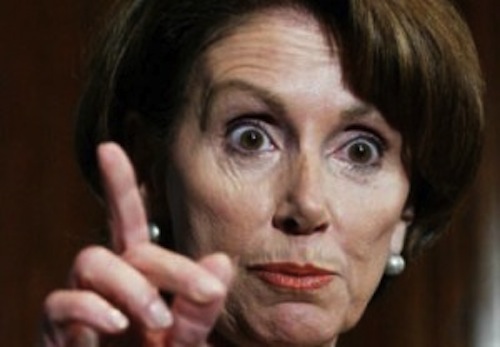Yesterday we mentioned the warning that Sarah Palin issued, via Twitter, on the eve of the House health care vote: “Shocking new questions re:whether military healthcare plans r protected under Obamacare. How will underpaid troops afford their own purchase?” First of all, never was a medium so suited to an author as Twitter is to Sarah Palin. With its forced mangling of syntax, its elision of subjects and verbs, and the impossibility of backing statements with evidence built into its form, Twitter is to Palin was the aphorism was to Friederich Nietzsche. Second, the “shocking new question” to which Palin was referring was whether the TRICARE health benefits program for members of the military and their dependents would satisfy the insurance mandate that passed as part of Sunday night’s vote. The answer is: yes, obviously. TRICARE is health insurance—really good health care insurance, issued by the federal government as part of a single-payer system that stands as an argument for the public option Palin so vehemently opposes. The House bill specifically states that TRICARE will satisfy the mandate, and the White House issued a statement in August assuring us that TRICARE benefits would not be affected in any way by proposed legislation. The Senate version of the health care bill, however, does not specifically exempt TRICARE recipients from the mandate—just as it does not specifically exempt congressmen—and that’s what Sarah Palin is so terrified about. Won’t you allow her to terrify you?
Tag Archives: obamacare
Arguing over facts: House health care bill cuts deficit by $130 billion, maybe

A rare un-photoshopped image of Nancy Pelosi. Seriously, Google her and try to find a picture of her head not on a dog's body.
The Congressional Budget Office released its preliminary assessment (caution: boring) of the House health care reform bill this morning, and the news is good: if all goes as planned, the Reconciliation Act to HR 4872 and HR 3590 will reduce the deficit by $130 billion in its first ten years. Notice that I say, “the news is good,” and not “the news is good for Democrats.” Finding out that a plan to improve the general welfare might actually save us a bunch of money is nice; if you like the idea of poor kids having medicine but don’t like the idea of the United States becoming a wholly-owned subsidiary of China, the CBO report should be a load off your mind. Of course, if you’re some sort of professional demagogue whose opposition to health care reform has been based on the supposedly enormous tax burden it will place on your audience, it puts you in a tough position. Theoretically, you should change your mind—deficits bad: health care bad, so now deficit reduction good: health care good—but that would feel uncomfortably similar to being wrong. No, when your position suddenly stops lining up with the facts, your only option is to change the facts.
The Summer of Hate: Counterculture in 2009
I was going to be angry about these kids, but one look at the profoundly sixteen-year-old-girl expression on that sixteen-year-old girl’s face and I didn’t have the heart. (If you’d like to get real sad, you can read a blog written by that poor girl’s mother, in which she calls Barbara Boxer a “moronic twit.” The badge on the right side indicates that she’s made the list of “best conservative blogs on the net,” which is apparently determined by total word count.) That’s her boyfriend on the left, proving again that teenage boys will do anything under certain conditions. And what are these desperate youths and the ragtag band behind them protesting for? Lower taxes on the rich, reduced social services, deregulation of business and conservative fiscal policy.
To hear Frank Rich tell it, protests like these are harbingers of a new era of cultural and political upheaval. Last weekend was the fortieth anniversary of Woodstock, which television raised me to believe was the most important moment of the 20th century. It turns out that was all to promote The Wonder Years, though, because this year’s commemoration was overshadowed by the season premiere of Mad Men. First of all, if you don’t watch Mad Men, you should start immediately. It is the Cadillac of television shows, or the Combat! blog of television shows in that Frank Rich and I agree with it more than anyone else in America. Second of all, Frank Rich is right. The year that resonates with our present cultural moment isn’t 1969; it’s 1963.


